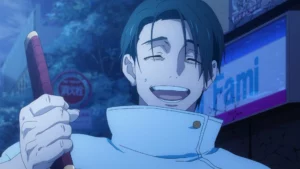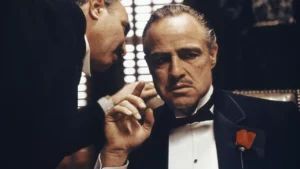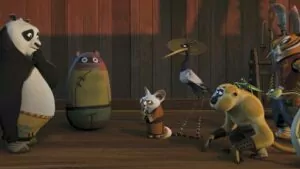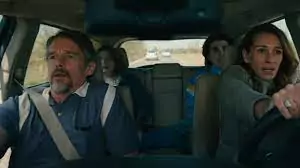DATE : 8TH OF DECEMBER 2020
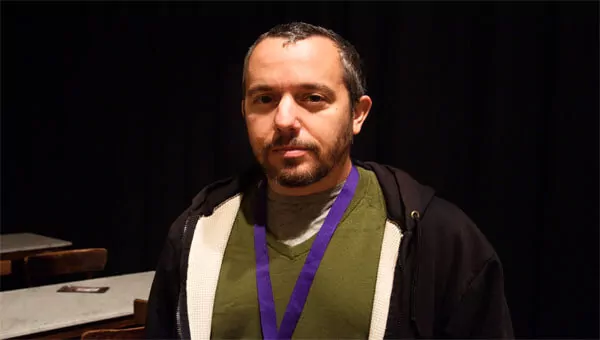
Jonathan Furmanski is a a Cinematographer who has some great Movies on his sheet and mainly Good Boys from 2019. The Movie Culture appreciates Cinematography and have doubled down on it with Interview Jonathan Furmanski.
Bon Jovi On a Night like this Cinematographer Jonathan Furmanski spoke about his experience on working on the project.
Greetings Mr. Furmanski, we at The Movie Culture are thrilled to have you. We certainly hope you and your family are safe in a time such as this.
Jonathan Furmanski: Hello! It’s great to meet you and thank you so much for asking me to participate. It’s an honor.
Q. To start with the questions, could you tell us how you got involved with Bon Jovi On a Night like this?
Jonathan Furmanski: Alex Horwitz, the director of the project, called me about it. He and I have worked together in the past on a few projects, including his documentary about Hamilton, the Broadway musical sensation. When he told me we’d be shooting Jon Bon Jovi, I jumped at the chance to work with such an immensely talented performer.
Q. Everyone has heard of Bon Jovi if not listened to the music. How was it working with them? Fan Moment much?
Jonathan Furmanski: Of course! Who hasn’t sang along to “Livin’ on a Prayer”? It was unnerving when Jon first walked into the practice space, but any uncertainty went away very quickly because he’s so savvy and aware, and he was as committed as Alex and I were to making a compelling and insightful film.
Q. Films are scripted hence every shot is prepped beforehand, but this is a concert. How do you shoot that? What was the camera set up like?
Jonathan Furmanski: Alex and I are very experienced in making verité documentaries so we slipped into that mode quickly and instinctively—it was just the two of us with a sound person for all the behind-the-scenes shooting. The concert footage, however, took more thought. We were kind of inheriting another production’s concert setup so we had to work within it, meaning the lights and cameras were already installed when we arrived, and we were trying to think of a way to differentiate our show and add some intimacy. Alex had the idea to set the band up “in the round” (instead of everyone facing the audience, because there was no audience) and that freed us up to be more creative with cameras and lighting. So we had a meeting with the camera operators and lighting designer the day before the shoot and basically asked them, “What would you like to do that you don’t usually get to do?” There were five cameras: three on tripods, one handheld, one Steadicam, and one on an 18’ jib arm. Unfortunately we didn’t have time to really map out all the songs and come up with very precise coverage—we only had about six total hours with the band in the rehearsal space before we shot the concer —but we had a great team and we were able to improvise and do a lot of things on the fly.
Q. You worked with Alex Horwitz on the project, how was that experience? Was there any wisdom shared between a Director and his DOP?
Jonathan Furmanski: The key to any director/DP relationship is trust, of course. As I said above, Alex and I had worked together before so we had a shorthand. There were a few phone conversations where we talked about things like shooting the documentary footage in black-and-white (I created a custom B&W LUT for the shoot in prep) and using vintage Canon K35 lenses for a less polished look. When we arrived in Nashville we scouted all the spaces so we could talk more specifically about what we were going to shoot. Then, for the documentary portions, Alex kind of let me do my thing, relying on me for framing, lighting, and awareness of the story and who’s where in the room. At the same time I know Alex has the whole picture in his head and can point to things we’re missing or don’t need, and his background in editing means we can be even more precise. If either one of us starts to lose confidence the whole project could fall apart.
Q. Your resume has a lot of comedic content throughout the years. What makes you attracted to do Comedy?
Jonathan Furmanski: I love that I get to shoot comedies and documentarie —it’s a lovely mix! But the truth is I came to it almost by accident. Years ago I was working on a tiny web series with a friend of mine from film school. One of the producers of that job, who knew my background in documentaries, recommended me for a comedy show that wanted a verité look. That show led to another, then another, and that was it. Truthfully I’m very happy with this unexpected turn because I get to work with very smart and funny people, and we spend most of our shoot days smiling and laughing and really enjoying ourselves—it balances the time spent on doc shoots about a grisly murder or awful injustice somewhere, which are important stories to tell but are a completely different approach. I also think there’s a lot more room for creativity in comedies than they typically get credit for.
Q. Good Boys last year and Search Party this year which is doing well on HBO Max, both mainstream and niche in their own right, do you wish to do more of such Projects?
Jonathan Furmanski: Yes, I would love to! I have another season of Search Party coming up on HBO Max in January, which is a show I’m very proud of and has a unique voice in scripted comedy, and there are rumors of a fifth season on the horizon. Good Boys is maybe the most “mainstream” project I’ve shot, but it’s fun and joyful and everyone who mentioned it told me the film really brightened them up, and that’s a great feeling.
Q. Being a DOP, do you look upto a Cinematographer? If given a choice, Deakins or Kaminski?
Jonathan Furmanski: Oh, wow. I could never pick between two DPs like that! Of course I love Roger’s work, who I think is arguably the best working DP today, and Janusz has a phenomenal eye for contrast and movement. But I also learn a lot from my less famous friends; I’m in a couple group chats with fellow DPs and it’s enlightening to hear their experiences. Cinematographers, in my experience, are very supportive of each other and the industry as a whole lifts itself up; I think of myself as a naturalist stylistically so, when I see what DPs are doing on shows like Euphoria and other projects that are much more expressionistic, I find it inspiring and it pushes me outside my comfort zone.
Q. Is there a certain Director you want to work with, if yes why?
Jonathan Furmanski: I’ve worked with all kinds of directors—some who are very hands-on, others who don’t want to be distracted by details; some who have a sophisticated technical background, others who wouldn’t know an f-stop if it said hello—and I think the best ones are the directors who are very prepared with a strong approach, who are also open to hearing other ideas or improvising in the moment. I always feel I do my best work in a fully collaborative environment, whether I’m tasked with creating the visual language myself or the director wants to have a five-minute discussion about the difference between a 21mm and 27mm lens (I do love those conversations!).
Q. To the younger generation who’d be introduced to Bon Jovi with your Film, what would you tell them to expect from it?
Jonathan Furmanski: Ooh, that’s a tough question. I defer to Alex! But seriously, it’s an opportunity to see a true legend in action, in a rare environment talking and singing about the events and challenges of 2020. It’s great music that has something to say.
Q. Is there a difficulty you faced during shooting a live concert? Would you do it again if given a chance?
Jonathan Furmanski: The difficulty really is that it’s a whole different world, with its own lingo and visual language, so there’s a bit of a learning curve. But it’s great to be involved with a live event because there are no “do-overs” and there’s an inherent energy and excitement in it. I’d jump at the chance to do it again.
Q. As a Cinephile, there’s always one movie which is responsible for getting us in love with the art form. Which movie was it for you?
Jonathan Furmanski: For me there are two: Star Wars and 2001. I saw Star Wars when I was six-years-old or so and of course it had an immediate and everlasting impact on me. Then my dad took me to see 2001 at a revival theater—“Now you’re going to see a real sci-fi movie,” he told me—and that film was equally inspirational. I knew 2001 had a lot to say, even if I didn’t understand most of it at the time. So then I started devouring books and watching every film I could (VCRs and video rental stores had just become a thing), and I told everyone I knew I’d be going into the film business (even though I had no idea what that meant).
Q. The Movie Culture is situated in India and we’d be happy to know whether there’s any Indian Origin Movie or A Series you came across and have loved it?
Jonathan Furmanski: One of the best things about going to film school is it exposes you to masters like Satyajit Ray, whose films I might never have heard of otherwise. I’m also very inspired by modern artists like Tarsem (see my comments about being a naturalist above).
Q. Do you have any future projects lined up which you’d like to share with us and your fans?
Jonathan Furmanski: The fourth season of Search Party premieres in January on HBO Max, and I’m shooting a few projects over the next six months or so that I’m very excited about (but can’t discuss just yet, sorry!).
Q. To many Young Cinematographers out there trying to get a big break, what piece of advice would you give to these young talents from your experience as a Cinematographer yourself?
Jonathan Furmanski: Shoot as much as possible, even with your smartphone; watch as many films as possible, and don’t limit yourself to the modern stuff—dig into classics, too; find like-minded people to discuss with, debate with, create things with, and spend long hours in stressful conditions with; and balance your creative vision with open-mindedness and curiosity in the spirit of collaboration (which sometimes means collaborating with wherever the sun is in the sky at the moment!).
With this I would like to wrap up with the interview questions. The Movie Culture would indeed like to thank Mr. Jonathan Furmanski for agreeing to this wonderful interview.
Jonathan Furmanski: Thank you! It was my pleasure to participate.
The Movie Culture Synopsis
Although not a scripted Movie, A film is a film and Jonathan Furmanski’s words should resonate with a fellow Cinematographer. On a side note, The Movie Culture could understand Jonathan Furmanski’s fan moment over meeting the singer as it was both funny and admirable.
His work Relationship with Horwitz and his background in Documentary gave us a true insight which The Movie Culture wants to have for aspiring Talents.
We couldn’t thank Jonathan Furmanski enough for this great Interview. Bon Jovi On a Night like this is available on Sirius XM.
